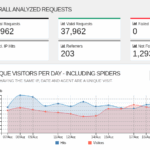The Online Safety Act
This is something that’s been covered many times over recent years, but after coming into force recently it’s only now that people are starting to see what it actually means and how it’s going to effect them. Whereas child protection is something the majority of the population are likely to wholeheartedly agree with, passing an act of parliament containing the word “safety” isn’t necessarily the best means to approach this goal.
VPNS
Virtual Private Networks can be used for many purposes. They form the backbone of many Internet based solutions that allow disparate geographical locations to communicate securely and can be used to allow remote workers to communicate securely with their office.
They can also be used to try to hide or mask the identity and location of end users from service providers.
Historically this has been a major problem for companies who provide services in one particular country and for various reasons, charge for those services when provided to another country. Using a VPN can be a way to circumvent such a restriction and for the most part it’s something that very large well resourced companies have failed prevent over the years, despite that failure resulting in lost revenue. Now however, it appears that every company, regardless of size, is expected to be able to do this with a 100% success rate.
While Virtual Private Networks (VPNs) are legal in the UK, according to this law, platforms have a clear responsibility to prevent children from bypassing safety protections.
So, this raises a number of questions, whereas there is a very precise technical definition of what constitutes a VPN, even if, buried somewhere deep in the fine-print, there is a contextual definition of what constitutes “a platform”, it would seem to be a fairly woolly term that could be applied to any kind of Internet facing service – should those enforcing the rules choose to do so.
I suppose the real question is whether it is even possible for an online service provider (i.e. a website) to “prevent children from bypassing safety protections”, or in context, from accessing an online service using a VPN given so many providers have failed in the past.
As well as legal duties to keep children safe, the very same law places clear and unequivocal duties on platforms to protect freedom of expression.
The clause goes on to mention financial penalties and gives example of content that children need to be protected from. The use of “such as” is key here, whereas you will probably agree with the examples given, this is another subjectively open-ended perspective where someone in “authority” may well view content from a completely different perspective. I find this a little paradoxical, on the one hand there is a need to prevent children from accessing certain unspecified content and limiting their interactions with other content, but on the other hand the penalties for failing to protect their freedom of expression are eye-watering.
Age verification keeps children safe
Of course it does. Since I was a boy it’s stopped under-age children from going into pubs and drinking alcohol, stopped under-age children from driving cars, and stopped under-age children from going into video rental shops and renting X-rated videos. For the avoidance of any confusion, in my experience age verification has very little impact in stopping people from doing what they are determined to do, or in the case of children, ‘what they want’.
The UK government has demanded to be able to access encrypted data stored by Apple users worldwide in its cloud service – BBC, Feb 2025
Before you connect the dots, this was under some “other” legislation that the government had previously introduced, one that they said was needed and gave them powers that they would clearly never abuse.
I’ve only looked at a couple of clauses here, there are more. If you’re interested in taking a look you can find the government publication here, helpfully layered in link upon link of connected documents.
https://www.gov.uk/government/collections/online-safety-act
It remains to be seen if they will abuse the powers of this new act (although you can Google for the words “isp”, “vpn” and “blocking”), the question is whether you want to wait to find out. If not, maybe consider taking a look at this link, at the time of writing the number is up over half a million. Worth a look at the full-text of the description of the petition.
https://petition.parliament.uk/petitions/722903
As an avid gamer, when I logged in to my gaming platform last night, the one that I’ve been a member of for over 20 years, it informed me that unless I completed an age verification process I would lose access to various features of the platform that would make my game unplayable. I only play one game, it’s a “shoot-em-up” and I only play against other adults. I do wonder whether they are really obliged to do this, given they’ve had my credit card for 20 years, or whether this is just a cynical fishing expedition to obtain more of my personal details. Either way, this morning I cancelled my subscription.




